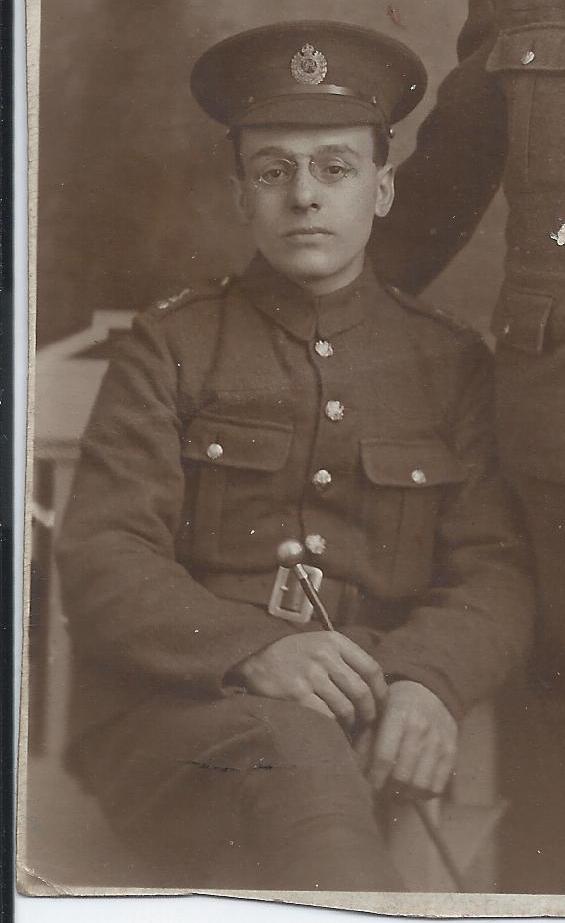
My dad, Edward Albert Kirtley, was born at New Town, Houghton-le-Spring, Co. Durham in 1887. His father, Edward 'Ned' Kirtley, had been a miner who, like my Blackett grandfather, had gone to work in the coal mines in Pennsylvania (and in Ohio), USA, but had returned to the UK and subsequently became a Wesleyan lay preacher. Dad died when I was only five, so I never got the chance to ask him about his family, but I have gleaned bits from various sources.
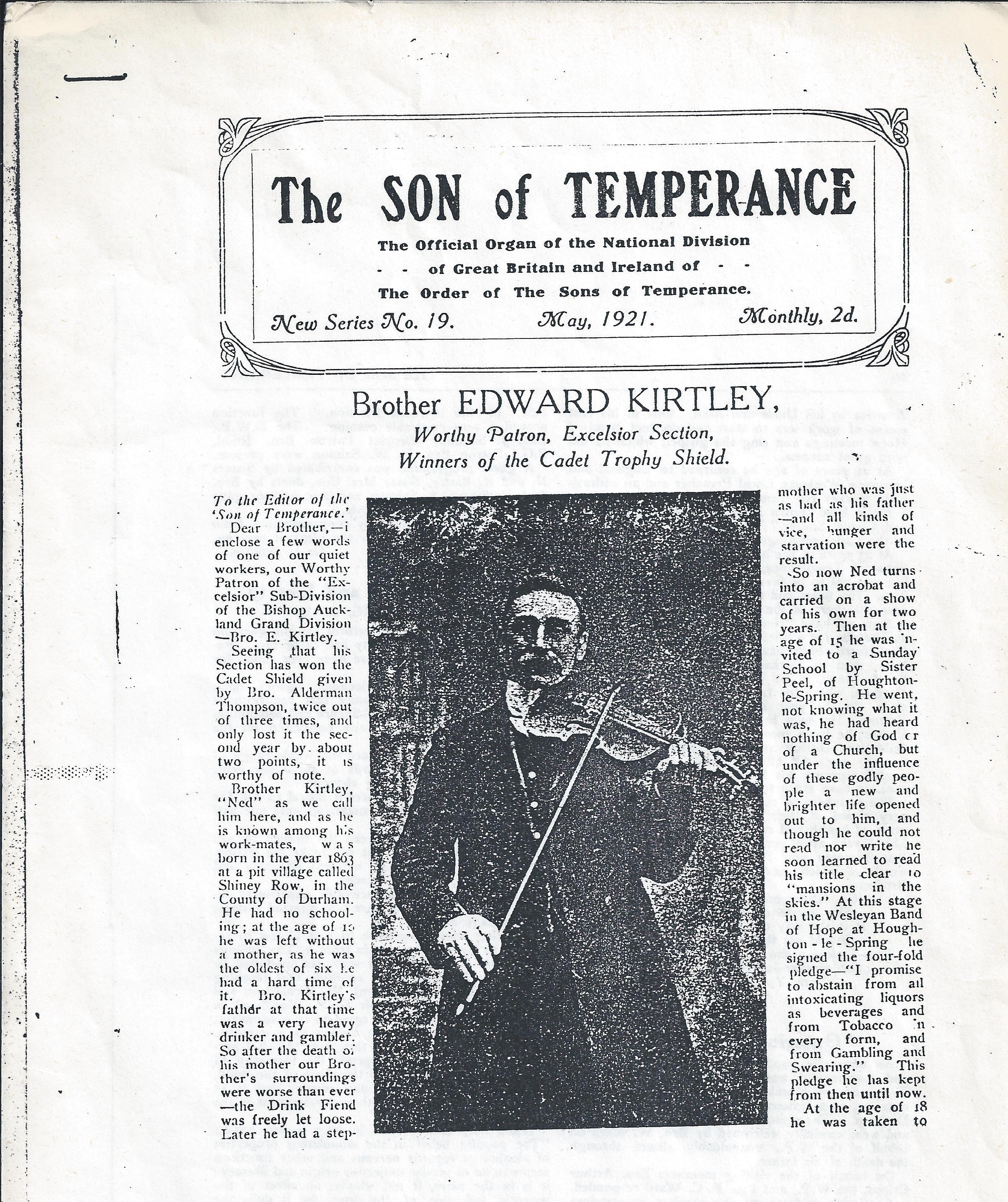
Granda Kirtley had had an extremely hard childhood after his mother died in 1873 and his father took to drink. That made him teetotal for the whole of his adult life, and influenced his son, my dad, to do likewise (although my two brothers and I managed to "restore the balance" by our drinking, at least until I too went teetotal in 2009). He recounted his early years in a series of lectures he used to give to temperance meetings, and you'll find images of what remains of his notes here. Copies of these are now held at Durham University Library.
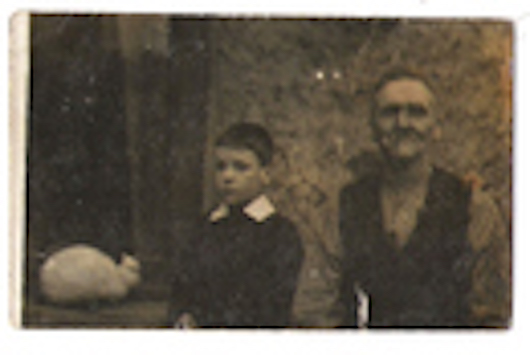
Relations between Granda Kirtley and his father, Thomas Blackbird Kirtley had obviously improved by the 1890s as his son, my dad, had his picture taken with him.
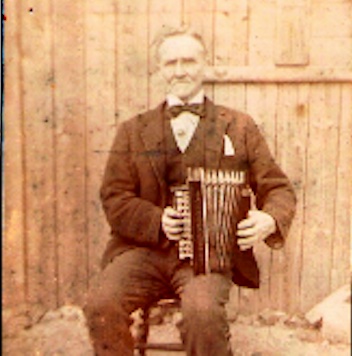
There does also seem to have been musical ability on my Kirtley side of the family. Not only does Granda Kirtley state (in his lecture notes mentioned above) that he was naturally musical but his father, Thomas Blackbird Kirtley is seen here playing the piano accordion (not an easy instrument to play, at least for me, as I discovered at a recording session at Abbey Road Studios in 1967 - I kept forgetting to squeeze the damned thing).
As to my dad's mother, what I know about her has been gleaned solely through genealogical research. She was Mary Ann nee Dodds, born in 1863 at Feldon Mill, near Edmundbyers, Co. Durham. She died in 1905, having had three children - my dad and my aunts Isabella ('Belle') and Eliza ('Betty'). My grandfather remarried in 1909 and had two boys, John and Wesley. The photo below, taken in 1892, shows my grandfather in the middle at the back with my grandmother at the front holding her infant daughter Isabella and my dad next to her. The elderly lady in the centre of the photograph is undoubtedly my great-grandmother Isabella nee Bell, and the others are presumably other members of the Dodds family, my grandmother's siblings.
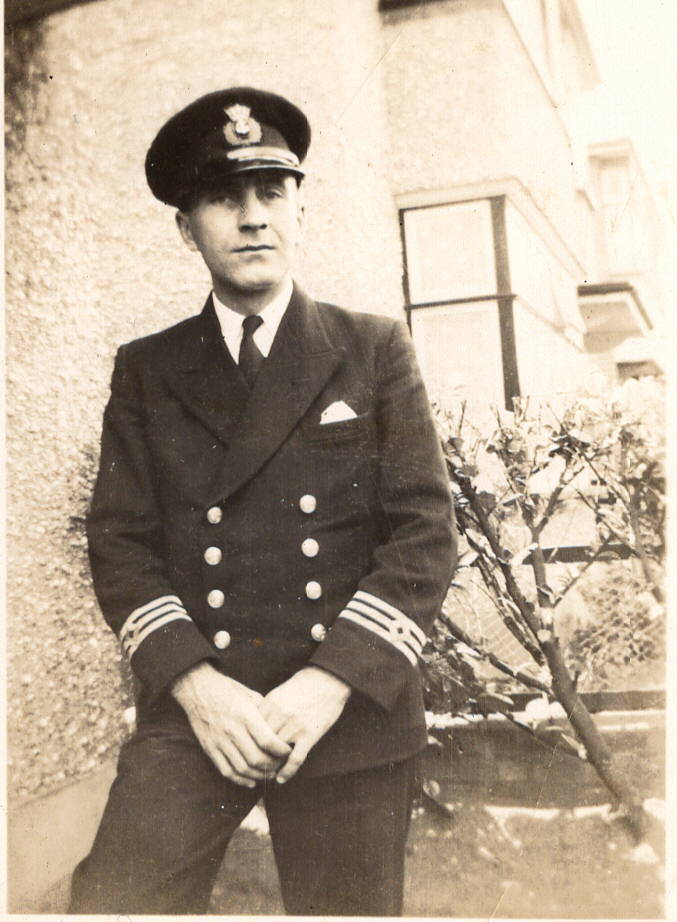
In 1901 my dad was working as a colliery office boy, but by 1911 he had become a 'winder', i.e. he worked the stationary engine raising and lowering the cage in which the miners descended to the coal face. He married his first wife, Harriet Baggott in 1905 and their son, my half-brother Arthur, who later became a Merchant Navy officer, was born in 1911. (After the War, Arthur gained his Master's Ticket and left the sea and worked in Aruba for many years before finally returning to the UK.)
Harriet died in 1917 and just over three years later dad met my mum and married her in 1921. My brother Stanley was born in Sunderland later that year. The circumstances of mum and dad meeting are contained in the transcript of mum and me talking in 1988.
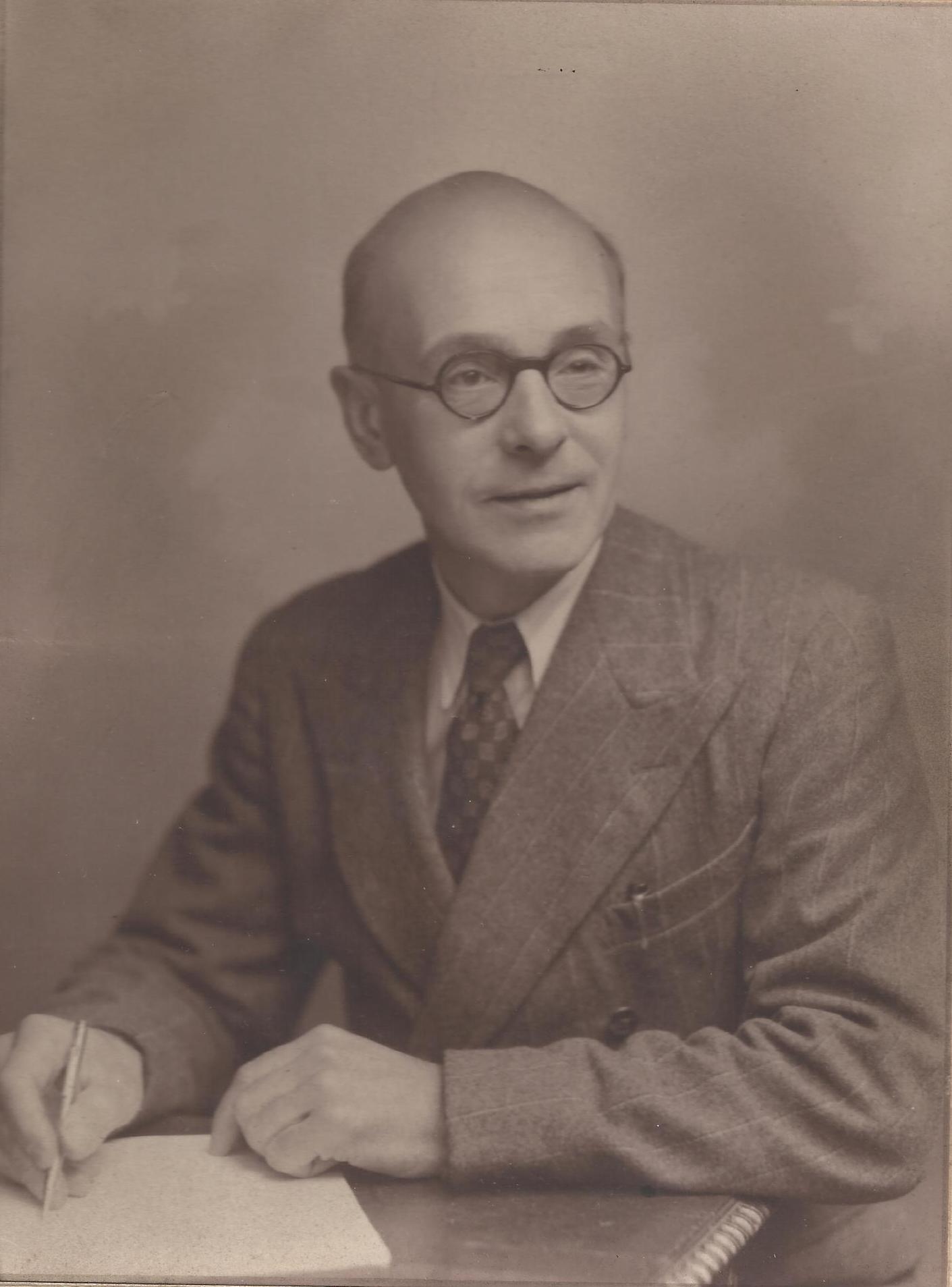
Despite having a wife and young son Dad had enlisted voluntarily as a 'squaddie" a few months after World War I broke out and by 1916 had risen to Staff Sergeant. In 1917 he was in charge of an anti-aircraft battery in Birmingham. Although self-taught at most things he was obviously extremely bright and in his spare time taught himself radio engineering. It was that skill that enabled him to get a job in Bournemouth between the wars, and he then progressed onto the new discipline of television engineering. You'll find an article on his involvement in pre-war television at the Moordown History site. In his final years he was a lecturer in radio and television engineering at Bournemouth Municipal College.
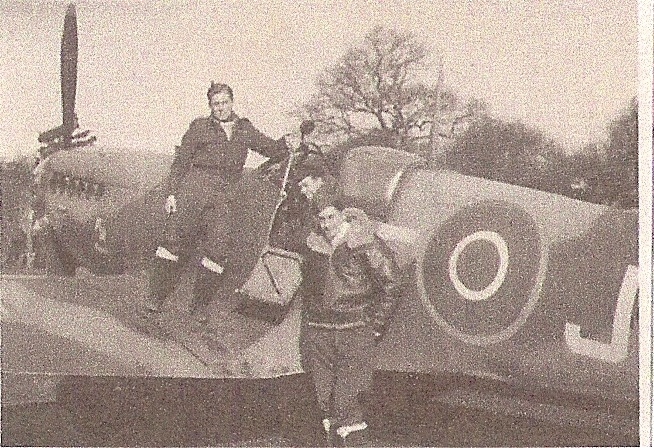
By the time I came on the scene in 1942 my brother Stanley was already a pilot in the RAF, having finished his training in the USA and just starting out as an instructor there. After a spell instructing in Canada he returned to Europe in 1944 as he wanted to fight and saw a great deal of action, flying mainly Spitfires, but also occasionally Hurricanes and later Mustangs, including over Caen and Arnhem, as well as over Germany itself. He was part of the fighter escort for Winston Churchill on his way back from the Potsdam Conference. He stayed in the RAF after the war and served in India as well as Europe. His last posting was as a Wing Commander, instructing at the RAF Staff College in Bracknell, Berks.
It was thanks to my brother Stanley that I became a rock'n'roll, and later jazz, pianist. While training as a pilot in Alabama under the Arnold Scheme, Stan used to visit bars and clubs and discovered boogie-woogie and honky-tonk. He quickly learned how to replicate what he'd heard and a few years later on his visits home on leave he showed me the licks. Despite my mum's efforts to get me to play 'serious' music I found Stan's stuff much more exciting and learned it myself. It did, however, put me off learning to sight-read music, which I still can't do to this day.
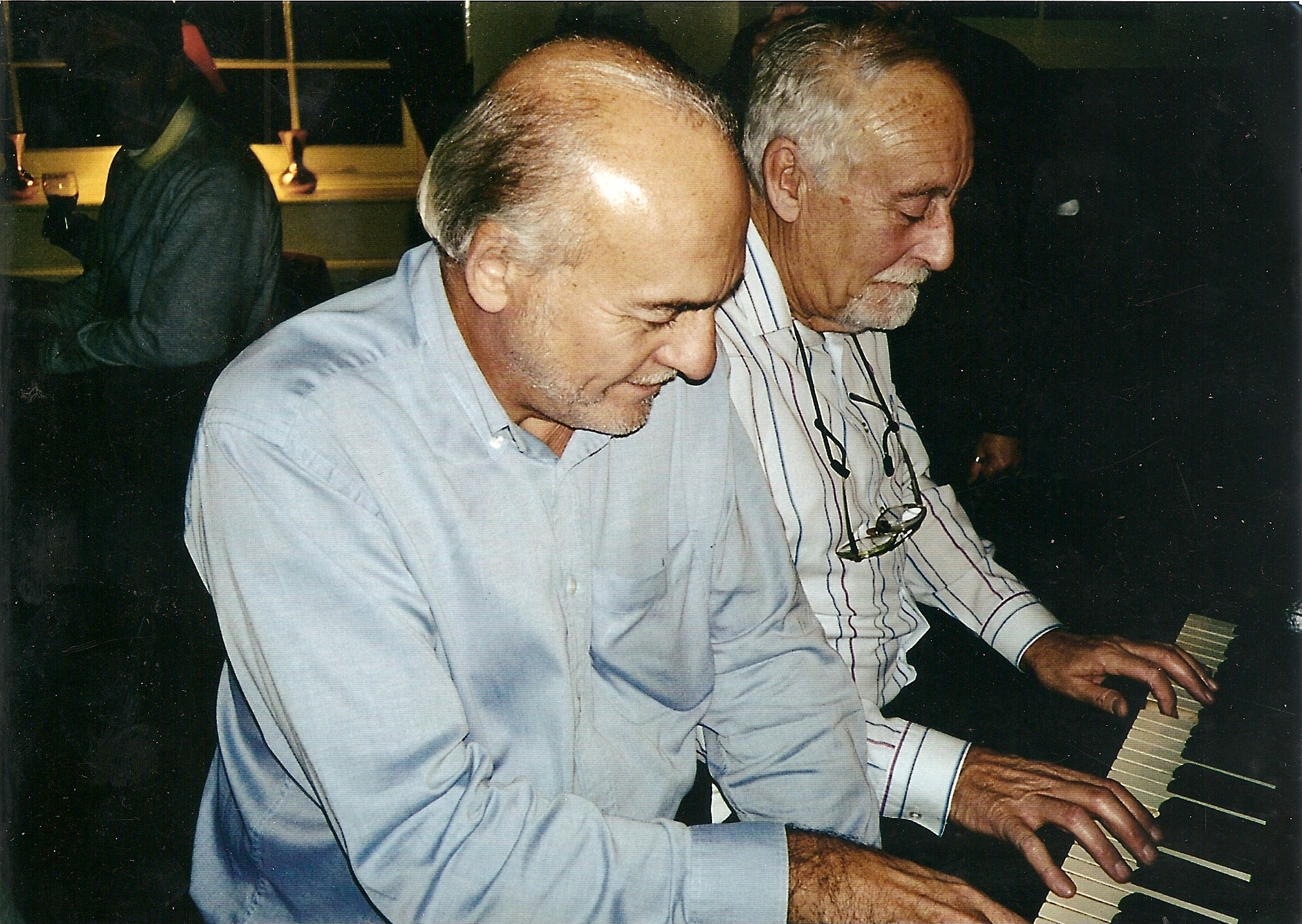
For a transcript of me talking with my brother Stan in 2006 please click here.
